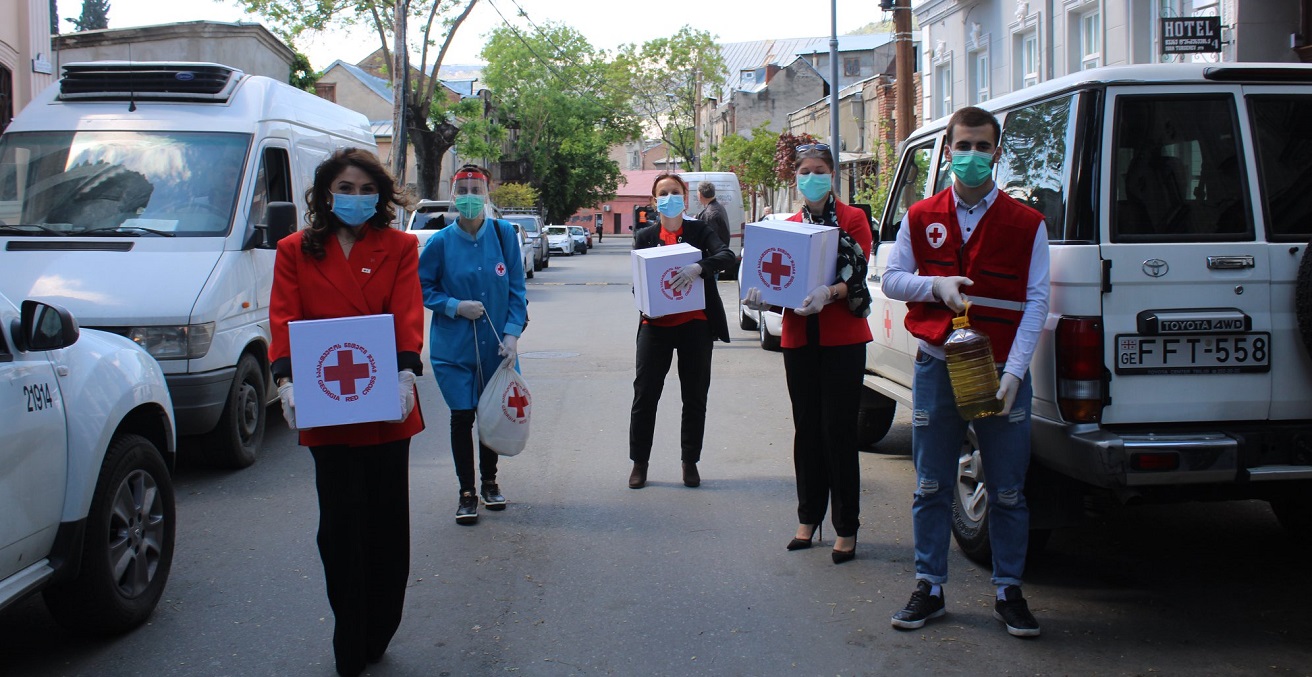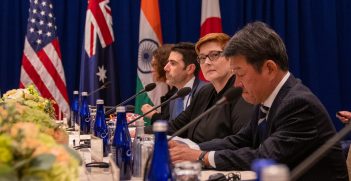Stranded in Tbilisi: Life in Lockdown for a Humanitarian

Being stranded with work due to coronavirus lockdowns requires adaption but not every change is new. Through the crisis, the ICRC’s forensic team continues to focus on protection, respect, and dignity for the deceased and their families.
Even before the pandemic, my work as a humanitarian was often done remotely. As the Regional Forensic Manager for Eurasia with the International Committee of the Red Cross (ICRC), my home base was Moscow, but my work was often everywhere else. Covering the Western Balkans, Ukraine, Armenia, Azerbaijan, Nagorno Karabakh, Georgia, the self-declared independent regions of Abkhazia and South Ossetia, Russia, and Central Asia, video conferencing with forensic coordinator colleagues across the region was already a familiar practice. That said, I’ve also been lucky enough to travel a fair amount for work. I spent less than six months in Moscow in 2019. So being “stranded” in Tbilisi for nearly three months now due to travel constraints does feel a little out of the ordinary. On the plus side, my carbon footprint will definitely be reduced this year!
Not that Georgia is a bad place to be stranded. Bordered by Russia, Azerbaijan, Armenia, Turkey, and the Black Sea, in the shadow of the Caucasus, it is a truly spectacular environment and the people I meet here are genuinely nice and generous.
Rather than a new direction, the ICRC’s forensic response to COVID-19 is simply an adaption of our existing activities and programs – supporting the right of bereaved families to know what has happened to their loved ones. Our attention usually homes in on those missing due to conflict or situations of violence but, in this time of pandemic, we are now also focusing on those who have died from situations of natural disaster, like COVID-19. As we discuss and present our concerns about potential high death tolls from the pandemic, we encounter the usual “you are so morbid, your immediate focus is always the dead” responses. But sadly, in many locations, our fears have been well-founded. We have seen evidence of mass burials even in countries with robust health systems. I spent the first few weeks of the pandemic stressing over the possibility of a COVID-19 outbreak in one of the migrant camps in Greece. Thankfully this has not happened, and hopefully it won’t.
The ICRC’s forensic team is present in more than 70 locations globally. We prepare guidance and recommendations to authorities and forensic institutions on numerous topics, many more than I initially thought possible. We have given advice about personal protective equipment (PPE) – hasn’t everyone? – though ours is more specific to the health and safety of people who have direct contact with the deceased. We also focus on the handling of the deceased to avoid further spread of the virus. We are confident that in non-pandemic times the deceased are not infectious or a risk to the living, but so little was known about the long-term viability and persistence of the virus, particularly early in the pandemic, that it was felt wise to be more conservative than usual and recommend strict precautions like those for other epidemics such as Ebola.
To ensure respect for cultural and religious beliefs, we have developed information about respectful, but safe, funeral practices for those of Islamic, Buddhist and Hindu faith. We have talked about the best ways to manage mass burials – where they become unavoidable – to ensure bodies are not disrespected and can be located later. We described safe autopsy practice for deceased people who had tested positive to COVID-19, including what the design of an appropriate autopsy room should entail. We coordinate with colleagues who work in the areas of health and detention and from the Red Cross and Red Crescent Movement more broadly to ensure consistent and comprehensive public health messaging. We have produced reference documents, created posters, made videos, hosted webinars, and contributed to multi-organisation publications. And yes, we have donated PPE and body bags.
Alongside coronavirus-related responses, we have also maintained many of our ongoing programs and activities. It has been an intense time. Recently, the forensic team has been looking to change the narrative around our response towards clarifying the fate and whereabouts of those missing due to conflict and other situations of violence. This represents a movement away from merely providing body bags and training on dignified management of the dead and towards an appreciation of a more integrated and focused scientific approach. One of the unexpected ironies of COVID-19 is that we are now feted for our body bags, and that dignified management of the dead has become a legitimate and valued conversation worldwide.
From a personal perspective, Georgia has been a calm and compliant haven in this COVID-19 storm. The government followed the “go early, go hard” model, and it seems to have paid off. There are relatively few cases (700 at the time of writing) and very few (12) deaths. A state of emergency was declared on March 23, but the measures do not feel overly restrictive. We can go out daily. I don’t see food shortages and there has been no panic buying – access to toilet paper has not been an issue here.
Tbilisi is a charismatic city of around one million people, positioned on a river with a quixotic mix of old and new buildings. So, it feels comfortable to a girl who hails from Adelaide, Australia. The traffic is usually chaotic and abundant. Driving was restricted over the Orthodox Easter period to reinforce social distancing, so the city was eerily quiet. The only other time I have seen the main street, Rustaveli Avenue, so empty was when it was blocked off for the filming of the next instalment of the Fast and Furious franchise in August last year.
I am not a great working-from-home person, so I realised early that I should follow the advice and set up some sort of routine, introduce some daily activity and most definitely social distancing myself from the refrigerator. Have I been successful? In terms of work, it has been an intense but productive time and has reinforced the calibre and commitment of the ICRC forensic team. I have probably been more successful with the exercise than the diet, but hey this is Georgia, well known for its great food and wine. Unfortunately, as we approach eight weeks of working from home, even the increased stretching and yoga is not defeating the non-ergonomic desk chair.
Most definitely the hardest part has been the separation from my husband who has spent the time at home in Sydney. He left Tbilisi in early March and we are now wondering when and where we will be able to become reacquainted. The other great hardship is my own fault, as I ignored my cardinal rule and left Moscow without the emergency Vegemite supply. Sadly, some people are just slow learners.
Jane Taylor is Regional Forensic Manager for Eurasia with the International Committee of the Red Cross. She is based in Moscow.
This article is part of the “Conflict and COVID-19” series by the International Committee of the Red Cross in partnership with AIIA, highlighting the overlapping humanitarian fallout of war and pandemic.
The views expressed above are those of the author, and do not necessarily represent those of the ICRC.




